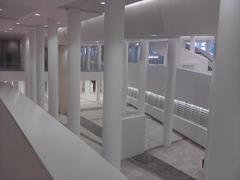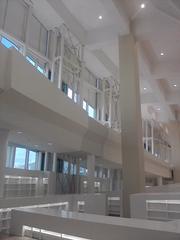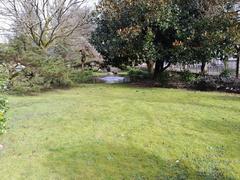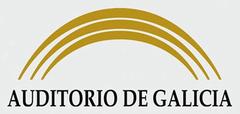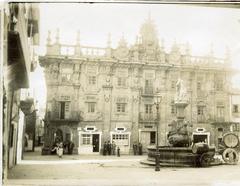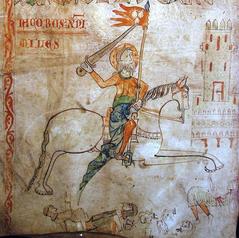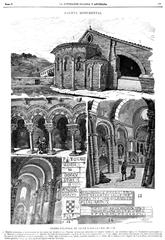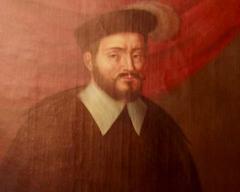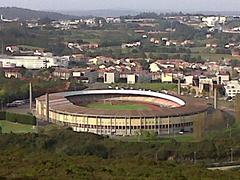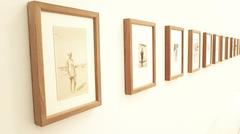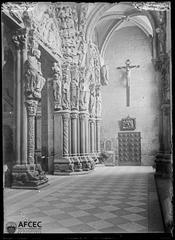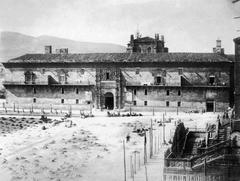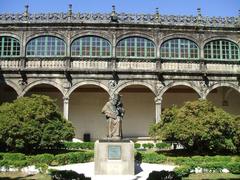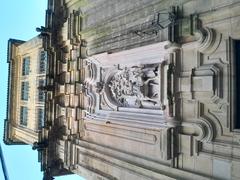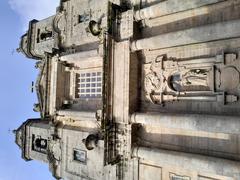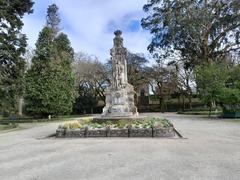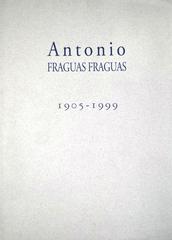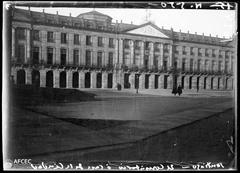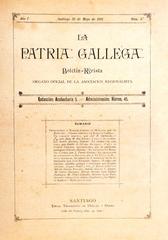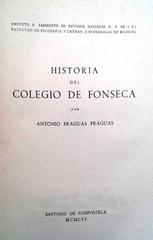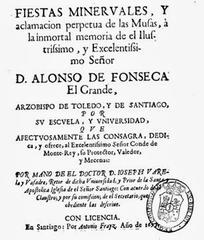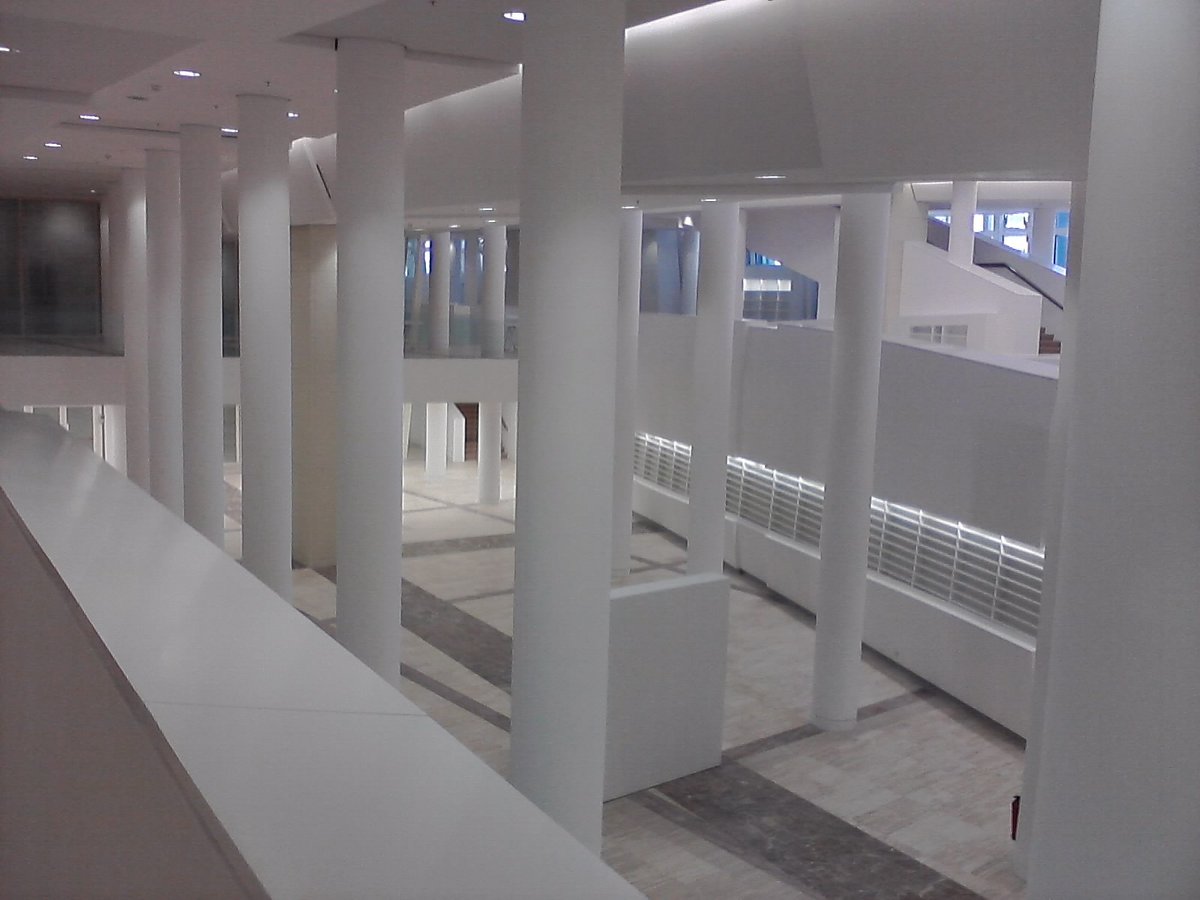
Library of Galicia Visiting Hours, Tickets & Santiago de Compostela Historical Sites Guide
Date: 14/06/2025
Introduction
Perched atop Mount Gaiás in Santiago de Compostela, Spain, the Library of Galicia (Biblioteca de Galicia) stands as a beacon of knowledge, culture, and architectural innovation within the renowned Cidade da Cultura de Galicia complex. Opened in 2011 and designed by esteemed architect Peter Eisenman, the library seamlessly fuses Galicia’s historical legacy with a bold vision for the future, serving as both a vast repository of literature and a vibrant cultural hub. With its undulating granite façade, panoramic views, and integration into a larger cultural acropolis, the Library of Galicia is not only an essential stop for scholars and architecture enthusiasts but also a gateway to the region’s rich heritage.
This guide provides comprehensive information on visiting the Library of Galicia—including opening hours, ticketing, accessibility, travel tips, guided tours, and nearby historical attractions—ensuring you make the most of your visit to Santiago de Compostela.
For further reading and detailed context, refer to reputable sources such as Turismo de Galicia, ArchDaily, and Wikipedia.
Table of Contents
- Library Origins and Architectural Vision
- Historical and Cultural Significance
- Design and Layout
- Visitor Experience
- Nearby Santiago de Compostela Historical Sites
- Practical Tips & FAQs
- Visual & Interactive Resources
- Conclusion & Next Steps
- References
Library Origins and Architectural Vision
The Library of Galicia is the flagship institution of the Cidade da Cultura de Galicia, conceived at the turn of the 21st century to honor the region’s role as a crossroads of traditions and intellectual exchange. Peter Eisenman’s architectural design draws inspiration from the natural contours of Monte Gaiás and the medieval street plan of Santiago, resulting in a structure that undulates like the Galician landscape and incorporates local granite, symbolizing resilience and a sense of place (ArchDaily; Arquitectura Viva).
Officially inaugurated in January 2011, the Library of Galicia was envisioned as a dynamic space for the preservation and dissemination of knowledge, housing up to one million volumes and fostering research, creativity, and community engagement (Turismo de Galicia).
Historical and Cultural Significance
Santiago de Compostela’s reputation as a center of learning traces back to the Middle Ages, when the discovery of St. James the Apostle’s relics transformed the city into a major pilgrimage destination and intellectual hub (Walk the Camino). The establishment of the University of Santiago de Compostela in 1495 further cemented this legacy (Dave in Spain).
The Library of Galicia builds on this foundation, supporting the preservation of Galician language and culture. Its collection includes rare manuscripts, archival materials, and works by prominent regional authors and artists, positioning the Library as a vital institution for the study and celebration of Galicia’s unique identity (Wikipedia; Voyage Spain).
Design and Layout
Exterior and Interior Features
- Façade and Structure: The library’s undulating stone roof and granite walls mirror the surrounding hills and reference the iconic scallop shell, a symbol of the Camino de Santiago (Arquitectura Viva).
- Spatial Organization: The building spans over 11,000 square meters, featuring six levels with a grand central reading room, exhibition spaces, classrooms, and assembly halls.
- Light and Movement: Skylights and irregular windows bathe interior spaces in natural light, while open circulation paths encourage exploration and interaction.
- Integration: The library connects with the adjacent Galician Archives and other Cidade da Cultura buildings via plazas and walkways (Turismo de Galicia).
Accessibility and Sustainability
- Universal Access: The library is fully accessible, with ramps, elevators, tactile signage, induction loops, and adapted restrooms.
- Sustainability: Energy-efficient lighting, recycling bins, and environmentally conscious design reflect a commitment to sustainable cultural stewardship.
Visitor Experience
Visiting Hours
- Monday to Friday: 8:30 am – 9:00 pm
- Saturday: 10:00 am – 2:00 pm
- Sunday & Public Holidays: Closed
Note: Hours may vary for special events. Always check the official website for current information.
Admission & Tickets
- General Admission: Free
- Special Exhibitions/Tours: Some may require advance booking or a small fee; consult the events calendar on the library website.
Getting There
- Address: Cidade da Cultura de Galicia, Monte Gaiás, s/n, 15707 Santiago de Compostela, A Coruña, Spain
- Public Transport: Bus lines C11 and C7 connect the city center and train station directly to the complex.
- By Car/Taxi: Approximately a 10-minute drive from the historic center; ample free parking available.
- On Foot: A scenic 35–40 minute walk from the city center.
Facilities
- Information Desk: Multilingual staff offer maps, guidance, and event details.
- Cloakroom & Lockers: Free storage for personal items.
- Wi-Fi & Study Spaces: Free high-speed Wi-Fi; individual and group study areas; reading lounges with panoramic views.
- Children & Families: Dedicated reading zone and family-friendly events.
- Refreshments: Cafeteria and vending machines within the Cidade da Cultura complex.
Guided Tours & Special Events
- Guided Tours: Available in Spanish, Galician, and English; advance booking recommended, especially for groups.
- Cultural Programming: Regular exhibitions, lectures, workshops, and literary festivals.
- Event Calendar: Up-to-date information on the library’s events calendar.
Nearby Santiago de Compostela Historical Sites
Enhance your cultural itinerary by visiting these nearby landmarks:
- Santiago de Compostela Cathedral: UNESCO World Heritage site and endpoint of the Camino de Santiago.
- Historic Old Town (Casco Antiguo): Medieval streets, plazas, and local shops.
- Museo do Pobo Galego: Museum of Galician culture and ethnography.
- Monastery of San Martín Pinario: One of Spain’s grandest religious complexes.
All are easily accessible from the Cidade da Cultura, either by short taxi/bus rides or on foot, offering a well-rounded experience of Galician heritage (Spain.info; One Day Itinerary).
Practical Tips & FAQs
Photography
- Allowed in most public and exhibition areas without flash; restrictions may apply in reading rooms and special collections.
Quiet Policy
- Maintain silence in reading rooms; set phones to silent.
Luggage
- Large bags are not permitted in reading areas; use the cloakroom or lockers.
FAQs
Q: What are the Library of Galicia’s current visiting hours?
A: Monday to Friday, 8:30 am–9:00 pm; Saturday, 10:00 am–2:00 pm; closed Sundays and public holidays.
Q: Is admission free?
A: Yes, general entry is free. Some exhibitions or guided tours may have a fee.
Q: Is the library accessible for people with disabilities?
A: Yes, the library offers full accessibility features.
Q: Are there guided tours?
A: Yes, in Spanish, Galician, and English. Book in advance for groups.
Q: Can I take photographs?
A: Yes, except in some sensitive or restricted areas.
Visual & Interactive Resources
- Images: Use photos with alt tags like “Library of Galicia panoramic view Santiago de Compostela” and “Library of Galicia reading room”.
- Interactive Map: Locate the library within the Cidade da Cultura and nearby attractions.
- Virtual Tours: Explore the library’s architecture and exhibitions online via the official website.
Conclusion & Next Steps
The Library of Galicia exemplifies the fusion of contemporary architecture, cultural stewardship, and community engagement. As a visitor, you’ll discover not only an impressive repository of knowledge but also a dynamic institution dedicated to preserving and celebrating Galician identity. With free admission, extensive facilities, and a prime location near Santiago de Compostela’s historical treasures, your visit promises to be both enriching and memorable.
Don’t miss out:
- Download the Audiala app for real-time updates, event information, and personalized recommendations.
- Explore related articles on Santiago de Compostela’s cultural sites.
- Follow us on social media for the latest news, tips, and inspiration.
References
- Turismo de Galicia
- ArchDaily
- Architect Magazine
- Wikipedia: Archive-Library of the Cathedral of Santiago de Compostela
- Walk the Camino
- Dave in Spain
- Arquitectura Viva
- Voyage Spain
- One Day Itinerary
- Spain.info
- Cidade da Cultura Official Website
- Foster + Partners: Architectures of Knowledge
